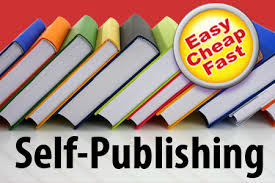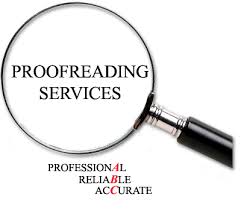We Are Dedicated To Your Success
This is your opportunity to be masters of your own fate! You’ve written a great book…Congratulations! The hardest part is done. Now, more than ever, you have tools at your fingertips to write your own story with the self-publishing process; it might not make you rich and famous overnight, but it will give you skills, knowledge, and experience…which are invaluable to any writer. And, at the very least, you might be able to use those skills to help others one day or even along the way to publishing even MORE books. We are the company and the team that will assist you in obtaining those skills and achieving your success. .
Why We Are So Dedicated
Our dedication comes from the good fruitage gained from working hard to reach our individual success as entrepreneurs. We have been through the seemingly tedious and rigorous steps, and we know how hard it can be to gain publishing success. Hence, we have formed a win-win team of hearts and minds that will allow you, the self-publishing author, and the ability to succeed.
One can never guarantee success. Success comes from personal determination and an individual’s willingness to succeed.
What we CAN guarantee is our want to be here for you and what we offer is our expertise, our knowledge, and our products. We will walk you through every step from beginning to end, even following you, keeping in touch, after you launch on your own.

Job Opportunities With Literary Muse Hub
Applicants must have excellent diagnostic and analytical skills, as well as be able to work with non-technical clients; to collaborate with the technology development software; and to work independently on projects.

Applications will be reviewed by our executive staff and we will schedule interviews soon after. Upcoming Positions will be posted as soon as they come available.
How We Print Your Products
 Because Literary Muse Hub knows the high cost of ordering your publications, we have taken the time to research several sources in order to save money on your printing needs.
Because Literary Muse Hub knows the high cost of ordering your publications, we have taken the time to research several sources in order to save money on your printing needs.
Our list of book printers comes from third party companies. These companies must meet our high standards from the beginning of the process all the way to the.
It is our expectation that all of our clients’ products must be published at the highest standards. All of our work comes with a 100% Satisfaction Guarantee.
Our Editing Process
 Editing and proofreading are essential aspects of effective writing. However, they are the later steps in the ongoing process of brainstorming, planning, drafting, and revising. Writers who rush or ignore any of these earlier steps can end up with a novel that is unclear, underdeveloped, and very difficult to correct in the later stages of the writing process. When you are ready to proofread and edit your draft, you should do so carefully and thoroughly.
Editing and proofreading are essential aspects of effective writing. However, they are the later steps in the ongoing process of brainstorming, planning, drafting, and revising. Writers who rush or ignore any of these earlier steps can end up with a novel that is unclear, underdeveloped, and very difficult to correct in the later stages of the writing process. When you are ready to proofread and edit your draft, you should do so carefully and thoroughly.
Literary Muse Hub has the gained expertise in editing and proofreading and exhibit top class professional abilities. By setting the highest standards in our industry, we thereby produce the highest quality of print ready content.

About Proofreading
 Proofreading means examining your text carefully to find and correct typographical errors and mistakes in grammar, style, and spelling. Here are some tips.
Proofreading means examining your text carefully to find and correct typographical errors and mistakes in grammar, style, and spelling. Here are some tips.
Before You Proofread
When You Proofread
When You Want to Learn More
Before You Proofread be sure you've revised the larger aspects of your text. Don't make corrections at the sentence and word level if you still need to work on the focus, organization, and development of the whole paper, of sections, or of paragraphs.
Set your text aside for a while (15 minutes, a day, a week) between writing and proofing. Some distance from the text will help you see mistakes more easily.
Eliminate unnecessary words before looking for mistakes. Depending on the style of writing you wish to publish, try to write clear, concise, direct sentences. Know what to look for. From the comments of your professors or a writing center instructor on past papers, make a list of mistakes you need to watch for.
When you proofread, work from a printout, not the computer screen. (See below for computer functions that can help you find some kinds of mistakes.)
Read out loud. This is especially helpful for spotting run-on sentences, but you'll also hear other problems that you may not see when reading silently.
Use a blank sheet of paper to cover up the lines below the one you're reading. This technique keeps you from skipping ahead of possible mistakes.
Use the search function of the computer to find mistakes you're likely to make. Search for "it," for instance, if you confuse "its" and "it's;" for "-ing" if dangling modifiers are a problem; for opening parentheses or quote marks if you tend to leave out the closing ones. If you tend to make many mistakes, check separately for each kind of error, moving from the most to the least important, and following whatever technique works best for you to identify that kind of mistake. For instance, read through once (backwards, sentence by sentence) to check for fragments; read through again (forward) to be sure subjects and verbs agree, and again (perhaps using a computer search for "this," "it," and "they") to trace pronouns to antecedents.
End with a spelling check, using a computer spelling checker or reading backwards word by word.
But remember that a spelling checker won't catch mistakes with homonyms (e.g., "they're," "their," "there") or certain typos (like "he" for "the").
This sounds like a lot to check doesn’t it? It is. That is why we offer our proofreading services. All of our work is proofed carefully and must meet strict proofing guidelines that were set at the highest industries levels.

Tips Before Submitting Your Manuscript To An Editor
Leave yourself plenty of time for all steps of the writing process; including editing. By making and following a timeline for the paper, you are more likely to have time to finish everything with the proper amount of care and attention.
Also, keep in mind that it may be best to lay your paper aside for a day or so before proofreading and editing; as you may be more likely to catch errors or notice structural problems if your writing isn’t so “fresh” in your mind.
Get acquainted with your resources. You don’t need to memorize every grammar or citation rule that may apply to the genre or discipline in which you’re writing—you can look them up. Take advantage of the resources available to you - dictionaries, thesauruses, handbooks, citation guides, handouts from class, librarians, and writing center consultants.
Know your weaknesses.
Keep a list of errors you tend to make: it will help you know what to look for when you edit. You can also read the paper once for each error type; if you’re only looking for one thing, you’ll be more likely to notice it.
Print a copy of your paper to use when editing and proofreading. It is much harder to catch errors on a screen than on paper.
Read your paper out loud. Often, when we read silently, our eyes skip over small errors, awkward or run-on sentences, and typos. By reading out loud, you force yourself to notice everything from spelling and word choice to the structure of sentences. You can also have someone read your paper aloud and tell you where they are confused. And read your paper backwards.
Another way to force yourself to notice small details is to take things out of context. Try reading your paper backwards, sentence by sentence or paragraph by paragraph, so that you are focusing on the text, not the ideas. This technique is especially helpful for catching sentence fragments. Be sure to check the punctuation.
Also look over the paper on a sentence-by-sentence level to see if your punctuation is correct. Are commas in the right places? Are there any run-on sentences? If you aren’t sure about how to use certain kinds of punctuation, look in a manual, explore other quicktips, and/or ask a writing consultant for help. Check the citations.
Check each in-text citation for correct format, and verify that the source is in the Works Cited or References list. This is also a good time to double-check the spelling of authors’ names, book or article titles, and so on.
Reread quotations. It is all too easy to mistype when copying words.
Get feedback from other people. Because we are such a part of what we write, it can be difficult to step outside our work and view it critically. When you seek outside opinions, you can break free of the isolation and absorption of writing and receive perspectives and insights that you may have otherwise missed.
By asking for feedback from other people, you are taking essential measures to improve your writing and to develop as a writer. Don’t rely solely on computer help. Spell check and grammar check tools are useful, but they do not constitute or substitute for proofreading. Develop and follow your own editing strategies, and don’t be fooled into thinking that computer tools alone are adequate for the job.
Rest. Relax. Reread.
Leave your paper alone for a day or two. Having some distance from what you’ve written can make your proofreader’s eye more critical and perceptive. In addition, you may find changes you would like to make after you read your text later.









